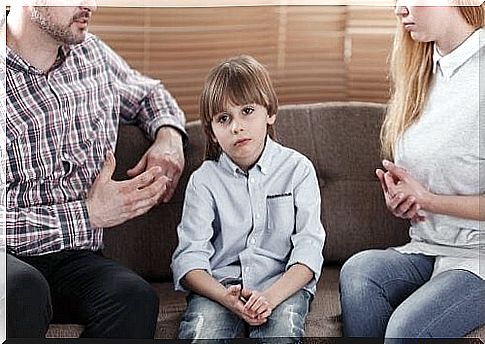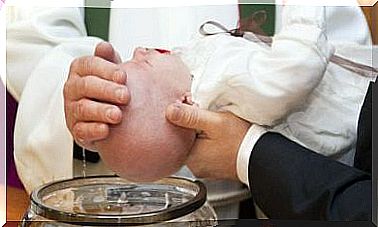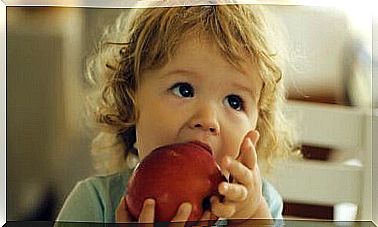Overly Critical Parents: Influence On The Development Of The Child – I Am The Mother

When we choose to become parents, we take on a very great responsibility. Among other things, we are responsible for raising emotionally healthy people. Unfortunately, there are also overly critical parents who do not let their children grow up in this way.
If a child has overly critical parents , then this can have serious consequences for the child’s development. This parenting method can have negative effects on the child’s emotional health and quality of life.
In today’s society there is permanent hectic and stress. As a result, many parents seem to be in an autopilot mode. They are often unable to pay the necessary attention to all areas of their life.
However, it is imperative that we prioritize our role as parents in any case. We need to be aware of how we are raising our children. Therefore, our educational measures must by no means be automated and inconsiderate.
If our children do not receive the necessary care, appreciation, and appropriate respect from their parents, they will have difficulty finding happiness and contentment in their lives and relationships.
Overly critical parents: children feel inadequate and inept
A critical family environment has a very negative impact on children because criticism is detrimental to the children’s personal development. Children who have overly critical parents often lack self-confidence. They also adopt behaviors that mark people with low self-esteem.
These children grow up feeling that they are incompetent and unable to meet the demands of their parents. In addition, they often find it difficult to leave their families. Children of overly critical parents are often afraid of the idea of living independently because they believe that they cannot cope with life without their parents.

Overly critical parents also tend to be overly protective of their children. In addition, they often find it difficult to control their own emotions. Therefore, they make their children feel guilty if they contradict or defend themselves.
Overprotected children
Some parents also tend to be overly protective of their children in unhealthy ways. You want to protect them from every possible danger. These parents see the world as a place that is full of dangers and threats for their children.
Therefore , they try to foresee any potential problem and prevent their children from it. As a result, they do not give their children responsibility, because “they will suffer enough when they are older.”
Though they certainly have good intentions, such behavior is giving their children the indirect message that the children are unable to take care of themselves. And this in turn leads to the fact that the children grow up believing that they are unable to face the challenges of life. As a result, they often feel inferior.
Although this behavior is unintentional, it still hinders the children’s development considerably. And when the children face the difficulties of life, they lack the resources and self-confidence to cope with them.
They will experience very great fears and remain largely dependent on their parents even in adulthood.
Overly critical parents: Lack of ability to control emotions
In addition, there are also parents who are unable to adequately control their own emotions. Often these are people who are not in contact with their own feelings and have difficulty recognizing them at all. They also have problems expressing feelings and regulating or controlling them appropriately.
In such an environment it is very difficult to convey positive messages. When a child becomes emotional, overly critical parents tend to either completely ignore the child’s feelings or downplay them. They diminish the value and importance of the child’s feelings. In addition, it can also happen that they react irritably or blame the child.
The message the child gets from this is that their feelings deserve neither attention nor respect. They will also learn that when they express their feelings they will not experience compassion, but rather rejection or punishment.

As a result, children who grow up in such an environment develop a tendency to suppress their emotions completely. When they then experience emotional moments, they often react very extremely and are completely beside themselves because they have never learned how to handle their emotions appropriately.
Strong dependence of the children on their parents
When children grew up in such an environment, they are often extremely dependent on their families. This applies both to the children who have constantly heard that they are doing everything wrong and to those who were seen as incapable of acting independently and who were therefore not allowed to do anything on their own.
Over time, these children will have serious difficulty building healthy relationships. In the first case they are often prone to emotional dependence and in the second to avoid intimacy and closeness.
In addition, they are very closely tied to their nuclear family, so that their personality is sometimes extremely restricted as a result. She is very scared of the idea of having to live her life without the support of her family. At the same time, her family continues to encourage this addiction over time.
Overly critical parents often use their children as an excuse not to have to deal with their own problems. For this reason, it is vital that we do our best to raise emotionally healthy and independent children.
We should adjust to their feelings and learn to understand them. The first step in building your self-esteem is to understand and respect your feelings.









